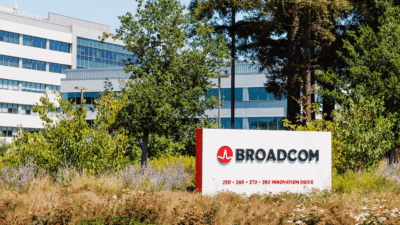Advertising Agencies Consolidate in the Face of Big Tech
The transaction would create the world’s largest advertising agency — that is, if you don’t count Big Tech players like Google and Amazon.

Sign up for smart news, insights, and analysis on the biggest financial stories of the day.
It’s the biggest ad deal since Sterling Cooper Draper Pryce, but the competitive landscape facing Madison Avenue men back in the day wasn’t dominated by IBM or any other giant technology company.
On Monday, advertising giant Omnicom Group announced its intention to buy ad firm Interpublic Group in a $13.25 billion all-stock deal. The transaction, if completed, will create the world’s largest advertising firm — that is, if you don’t count Big Tech players like Google and Amazon, which have been eating up more and more of the advertising industry’s market share.
Bigger and Bigger
The advertising industry, despite a few fallow years of high inflation rates cutting into companies’ marketing budgets, continues to grow. Advertising agency GroupM said in a report released Monday that 2024 will see the advertising industry top $1 trillion in total revenue this year, and that’s even stripping out political advertising in the US. Looking ahead to next year, GroupM said it expected the big winners to be US tech firms that sell advertising, rather than traditional ad agencies.
Omnicom’s absorption of Interpublic would buttress it against the relentless onslaught of Big Tech by making itself as big as possible:
- If enacted, the deal would mean Omnicom would have more than 100,000 employees and command roughly $25 billion in annual revenue, per The New York Times.
- That would make it the largest agency in the business, but it would still pale in comparison with Silicon Valley giants’ ad divisions. Google’s advertising business pulled in $238 billion in 2023, Meta’s made $132 billion, and Amazon’s notched a humbling $47 billion.
Big Fish in a Big Pond: Big Tech’s enormousness puts the Omnicom deal in an unusual situation, creating a firm that would be simultaneously the biggest of its kind and yet dwarfed in its sector. Omnicom CEO John Wren played that to the company’s advantage in a call with analysts. “We are pretty confident this is not going to create any regulatory issues. The world isn’t divided into four companies — you have things like Google, Facebook, Amazon […] servicing people’s marketing needs,” Wren said, per Reuters’ reporting.











